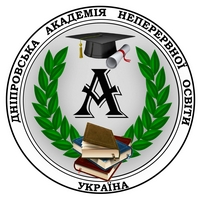MACDONALDIZATION AND DISNEYIZATION AS GLOBALIZATION TRENDS
Abstract
The article explores the dimensions of the social phenomenon of McDonaldization, introduced into scientific circulation by sociologist George Ritzer. Using the principles established by the McDonald's fast food corporation as a metaphor, Ritzer delves into the consequences of rationalization and standardization observed in modern society. McDonaldization serves as a catalyst for larger-scale social transformations, spreading the process of globalization and generating the phenomenon of Disneyization in all areas of human activity. It is determined that the McDonaldization drive for efficiency and control leads to the «irrationality of rationality» in various aspects of modern human life. Benjamin Barber's concept illustrates strategies for the development of a globalized culture in which McWorld and Jihad coexist and interact, impeding the development of democratic processes, but each in its own way. The article reveals the nature of Disneyization and its implementation in the globalization narratives of our time. The emergence of the McDonald's and Disneyized worlds emphasize the spread of the logic of consumerism, which plays a key role in the formation of a new world order with an emphasis on universalization, predictability and control of all social processes that fall into the project. Disneyization is defined as a transformative force that embellishes reality, emphasizes compliance with consumer norms, and distorts historical narratives by making them simplistic. The trivialization and sanitization of media products are the next stages in the evolution of the McDonaldized and Disneyized world, which gives rise to hybrid consumption and the desire to expand the territory of influence. The findings of this study contribute to a comprehensive understanding of the impact of McDonaldization, which is not limited to the fast food industry but extends to social, educational, artistic, political, economic, and other spheres. The interconnection of McDonald's with related phenomena, such as Disneyization, allows us to take a fresh look at the development of modern society.
References
2. Шевчук Д. Культурна ідентичність та глобалізація. Наукові записки Національного університету «Острозька академія». Серія: Культурологія. 2010. Вип. 5. С. 4–15.
3. Barber B. R., Jihad vs. McWorld. Paperback: Ballantine Books, 1996. 432 p.
4. Bryman A. The Disneyization of Society. UK: Sage Publications, 2004. 200 p.
5. Ciechanowski H. McDonaldization of archives (an introduction to discussion). ARCHEION. 2023. T. CXXIV, s. 87–127.
6. Finkelstein J. Rich Food: McDonald’s and Modern life. Resisting McDonaldization. SAGE Publications Ltd., 1999. pp.70–82.
7. Giroux H. A., Pollock G. The Mouse that Roared: Disney and the End of Innocence. Rowman & Littlefield Publishers, 2010. 192 p.
8. Hayes D., Wynyard R. The McDonaldization of higher education updated. The therapeutic turn. Routledge Handbook of the Sociology of Higher Education. 2nd Edition. ImprintRoutledge, 2022. рр.205–218.
9. Ritzer G. The «McDonaldization» of Society. The Journal of American Culture, 1983. 6 (1). pр. 100–107. doi:10.1111/j.1542-734X.1983.0601_100.x
10. Walz G. Charlie Thorson and the temporary Disneyfication of Warner Bros. cartoons, In K. S. Sandler (Ed.), Reading the rabbit: Explorations in Warner Bros. animation New Brunswick, NJ: Rutgers University Press, 1998. pp. 49–66.
11. Weinstein D., Weinstein M. A. McDonaldization Enframed. Resisting McDonaldization. SAGE Publications Ltd., 1999. pp. 57–69.

 ISSN
ISSN  ISSN
ISSN 

